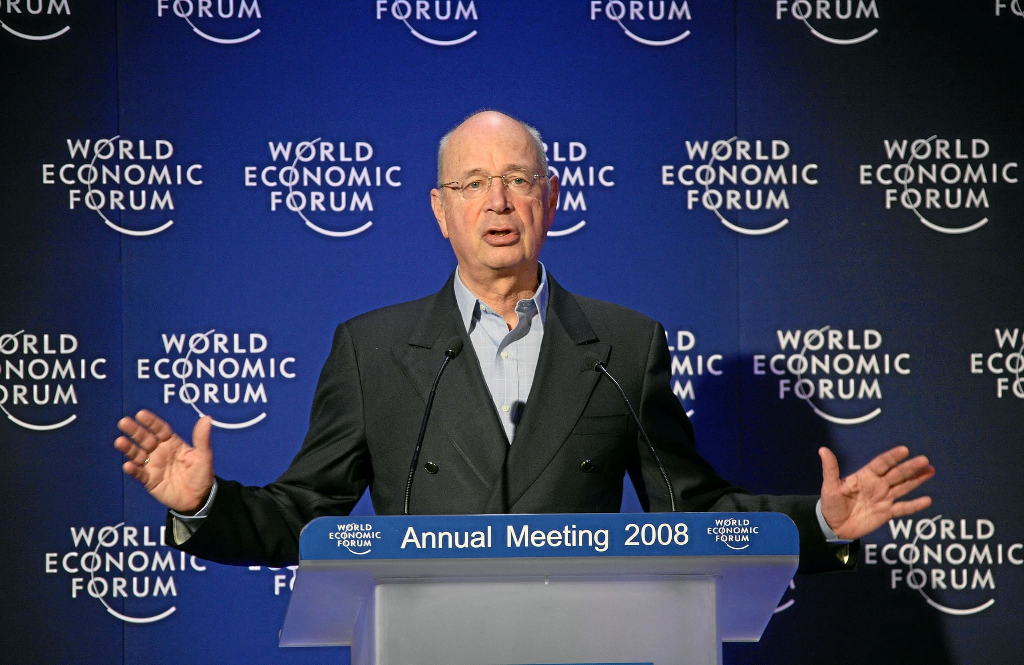
- Critics argue that the WEF, created by Klaus Schwab as a European management portal in Davos in 1971, holds too much control and influence over acting heads of state.
- Schwab stated that the Fourth Industrial Revolution would lead to a fusion of our physical, digital, and biological identities.
- Schwab has also supported controversial ideas such as mass surveillance, digital IDs, population control, and the enforcement of COVID-19 lockdowns.
- Schwab’s resignation comes at a time when conservative ideas are gaining strength, far-right parties are rising across Europe, and a major political shift is underway in the United States.
Klaus Schwab, a German citizen, created a European management portal in Davos, Switzerland, back in 1971. It was a forum meant to build a strong relationship between European and American businesses. The first meeting saw almost 450 business leaders attending. Initially, the forum was solely focused on business leaders.
The forum progressed significantly, and in 1987, the name was changed to the World Economic Forum (WEF). Today, the WEF is one of the largest non-governmental forums in the world, with participation from heads of state, ministers, NGOs, media, and other global actors. Klaus Schwab, who had led the forum since its inception, has now decided to step down as the executive chairman of the WEF. The forum has been revolutionary in initiating discussions on contemporary global issues. It has offered multiple solutions and has become the go-to platform for dialogue on global challenges.
However, things are not as rosy as they appear. Since its inception, the World Economic Forum has been questioned for its influence, ideas, and organisational status. Critics argue that the WEF holds too much control and influence over acting heads of state. This becomes a point of concern because the WEF, being a non-governmental entity, has developed close ties with various governments. Critics believe this undermines public accountability and poses a threat to democracy, as unelected executive bodies shouldn’t influence the global democratic polity.
Criticism is not only directed at the structure of the forum but also personally toward Klaus Schwab. He has made several controversial statements that raise questions about his intentions and the motives of the WEF. One of the most debated topics associated with him is the idea of the “Great Reset.”
Published in 2020, the book The Great Reset discusses changes in environmental, social, and governance systems. It talks about the centralization of economic control, which many critics see as a dangerous idea. The book proposes that a single body should control major global entities—something that threatens national sovereignty and global diversity.
Schwab also stated that the Fourth Industrial Revolution would lead to a fusion of our physical, digital, and biological identities. This has been widely criticised as a promotion of transhumanism, which many consider unethical and unnatural. Critics argue that it aims to replace or restrict human capabilities and tamper with the natural order.
Another controversial statement attributed to Schwab is: “You will own nothing and be happy.” This has been interpreted as the promotion of a dystopian, communist-style model. Many believe that he envisions a world governed by a single authority, where individuals and nations have little to no autonomy. This directly threatens the values of liberty, democracy, and individual rights.
Furthermore, Klaus Schwab and the WEF have been accused of being the architects of a so-called “global cabal.” Back in 2004, the WEF launched a program called Young Global Leaders, and several of its alumni have gone on to occupy powerful positions, such as French President Emmanuel Macron, former Canadian PM Justin Trudeau, former New Zealand PM Jacinda Ardern, and Meta CEO Mark Zuckerberg.
There is a noticeable pattern: many of these alumni hold liberal, globalist views. Critics say the WEF serves as a grooming ground to nurture future leaders who would promote and maintain a global liberal order. This idea was further reinforced when Klaus Schwab said, “We penetrate the cabinets,” referring to the influence the WEF holds over national governments. He has also supported controversial ideas such as mass surveillance, digital IDs, population control, and the enforcement of COVID-19 lockdowns. These are seen by many as threats to personal privacy and freedoms.
The forum has even discussed depopulation strategies under the guise of sustainability. Statements have been made suggesting that the world does not need 8 billion people—an idea widely condemned as unethical and dehumanising.
Despite the negative economic consequences and lack of effectiveness, the WEF supported strict lockdowns during the COVID-19 pandemic. While few countries adopted this model, the push for mandatory lockdowns came strongly from the WEF’s ideological perspective.
Now, with Klaus Schwab stepping down from the executive role and an investigation into his alleged misconduct ordered, this might not only lead to changes within the WEF but could potentially shift the global ideological leadership as well. This comes at a time when conservative ideas are gaining strength, far-right parties are rising across Europe, and a major political shift is underway in the United States under the presidency of Donald Trump.
References:
- https://www.livemint.com/news/world/klaus-schwab-steps-down-as-world-economic-forum-chairman-after-55-years-peter-brabeck-letmathe-named-interim-chair/amp-11745230605798.html
- https://www.weforum.org/stories/2020/06/now-is-the-time-for-a-great-reset/
- https://www.opendemocracy.net/en/oureconomy/conspiracy-theories-aside-there-something-fishy-about-great-reset/
- https://www.reuters.com/world/world-economic-forum-launches-probe-into-founder-klaus-schwab-over-whistleblower-2025-04-22/
Aayush Pal is a freelance writer on contemporary geopolitical developments. The views expressed in his work are entirely his own.
